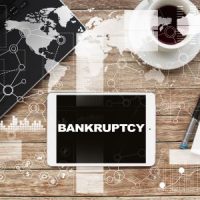Car Repossession and Chapter 13 Bankruptcy

Having your vehicle repossessed due to defaulting on your loan or missed payments can be a stressful and overwhelming experience, especially if you rely on your car for daily activities like commuting to work, school, or running errands. Unfortunately, quite a number of people have to deal with the reality of having their vehicles repossessed. Fortunately, there are legal options available to help you regain control of your situation and protect your vehicle. One such option is filing a Chapter 13 bankruptcy. Chapter 13 bankruptcy can help you keep your car and address overdue payments. Read on for more on car repossession and Chapter 13 bankruptcy.
A Brief Overview of Chapter 13 Bankruptcy
Chapter 13 bankruptcy lets you develop a plan to pay back your debts over a period of time. This option is different from Chapter 7 bankruptcy, which entails liquidating non-exempt property and using the proceeds to pay off creditors. Chapter 13 bankruptcy allows debtors to reorganize their debts while keeping their property.
What Is Vehicle Repossession?
When you get a loan to purchase a vehicle, the car is technically not yours. Your car belongs to the financial institution that loaned you the money until you finish making payments. Vehicle repossession happens when the financial institution that loaned you the money to purchase your car takes the car from you due to you failing to make payments or defaulting on your loan. Usually, repossession happens without the lender giving the borrower a heads-up. After your car is repossessed, it will probably be sold at an auction. If your vehicle sells for less than you own, you may be responsible for the difference, plus any applicable fees.
Car Repossession and Chapter 13 Bankruptcy
If you file for Chapter 13 bankruptcy while you still have your vehicle, the automatic stay will prevent the lender from taking your car from you. Once the automatic stay goes into effect, lenders are prohibited from taking any further collection actions. If the court approves your Chapter 13 repayment plan and your plan covers any arrears or missed car loan payments, the lender cannot repossess your car as long as you stay current on your payments.
If your vehicle was repossessed shortly before you filed your bankruptcy case, you might be able to get it back. In your Chapter 13 repayment plan, you will need to outline how you intend to repay your missed car payments. You will need to continue making regular payments if you want to keep your vehicle. Once you are done with the repayment plan, you will be able to claim full ownership of your vehicle. The lender will release the car’s lien, and you will own the vehicle without any impediments from the previous loan.
Chapter 13 bankruptcy can allow you to protect your vehicle while also managing other debts. However, the bankruptcy process can be complex, from eligibility to filing requirements and repayment plans. It is vital to consult with a qualified bankruptcy attorney if you are considering filing for Chapter 13 bankruptcy.
Contact a Lehighton & Carbon County Bankruptcy Attorney
Our skilled Lehighton & Carbon County bankruptcy attorney at The Law Office of Adam R. Weaver, Esq. can assess your situation, help you understand your options, and guide you through the complex legal process.
